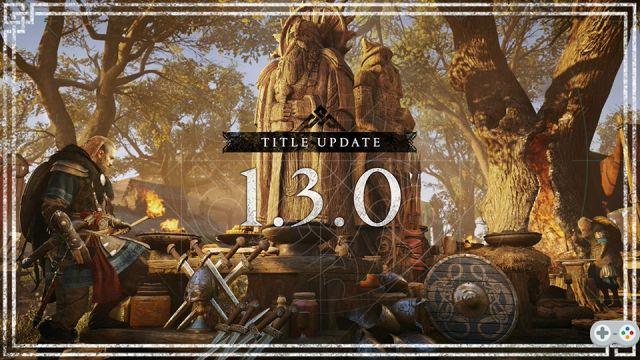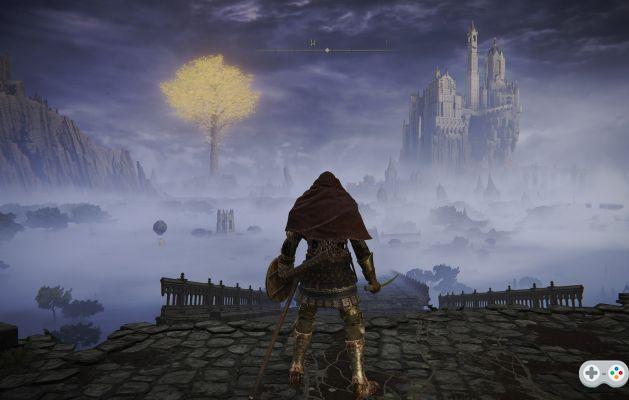
With the announcement of a Spanish localization scheduled for later this year on EVE Online, CCP is completing its internationalization, and is seeking to convince new players.
In 2014, several years after the launch of EVE Online, CCP finally launched the Spanish version of its space MMO. Over the months, several other languages were then added to the game, including Japanese which was recently relaunched, while the Chinese version now managed by NetEase since the release of EVE Echoes.
Localization techniques that evolve over the years
And in the coming months, a highly anticipated localization will see the light of day: Spanish. The third most spoken language in the world will thus have the right to the chapter in a game seeking to renew its audience. How does the work of localization of an MMO take place? Is it only useful to offer one on international servers? We caught up with Camille Faivre d'Arcier, aka Tara, localization manager at CCP Games, to reveal the secrets behind EVE Online. We regularly see criticism from players when a game is released without being localized in the various European languages, but managing this type of functionality is a long-term job: "What we do for a language is not necessarily what we are going to do for another language. When launching the Korean version of EVE Online in 2019, it was necessary to take into account the intricacies of the local characters so that they integrate well with the interface. »To do this, before each big localization, which is not simply to add additional text in the event of an update, the localization teams will work in pairs with the programmers to ensure ideal visibility in game. .
Spanish is another example where we could say that since Spanish or German are already in play, the integration would take over the codes of the previous European languages, except that this is not the case:
"When we added Spanish in 2014, the localization techniques and the process weren't the same as today, so we had to update ourselves on all the tools used at the time for the localization. arrival of the Spanish. »
CCP will also seek to rely on groups of players, seen as ambassadors of a language, in order to better develop the localization, to make changes. The objective is the same for the Spanish which will benefit from a beta launch by the end of the year, before being fully deployed by winter 2022.
Nevertheless, for a game initially launched in 2003, the question of the interest of a complete text localization arises at a time when most veterans prefer to play in English on deeply international servers:
“For each language, the share of players using the dedicated localization varies enormously. It depends on the language level of the countries concerned. In Spain, we actually have a lot of players who have been there for a very long time and who will tend to play in English, but the neophytes, for the most part, will prefer to play in Spanish. »

Beyond its immediate interest, localization helps convince new players to enter the space known to be already difficult to access EVE Online.
A localization with the support of the fans
There are also times when the localization team relies on fan work, such as for Spanish:
“Players have been asking for a Spanish version for years, and some are so committed they've sent us translations of thousands of words from the game, offering to help. This expectation is perhaps explained by a lower level of English than elsewhere in certain Spanish-speaking countries, and by a desire on the part of players to prepare for the integration of their friends. »
As for the priority given to a particular language in the localization of EVE Online, it is explained by the desire of CCP to launch into countries notoriously reluctant to speak English. It is for this reason that the title was first translated into Japanese or Korean despite the expectation of a Spanish version.
The main concern of CCP during the localization is above all to attract a wider audience, an element which gave rise, in parallel, to the redesign in several stages - and moreover still in progress of the tutorial:
"EVE Online is a difficult game to grasp at first, allowing players to have a tutorial that is simple, that helps them understand our universe, and that is translated from start to finish, it offers greater opportunities. »
Increasingly important localization choices that forced CCP to change its development methods, without causing any delays for updates:
“We have a machine that is well run for localization. We hold a release cadence that is quite regular. We are never late, localization is always offered at the same time as English, we are committed to it in any case. »

CCP is a unique studio in the MMO and video game landscape with its main studio located in Iceland, a small island in northern Europe. A real challenge for Camille Faivre d'Arcier, who played a little EVE Online, and who took advantage of a position as French language manager to join the studio:
“Upon arriving, I spent hours and hours getting to know the game, but also getting to know the community to adapt to their own language. The Spanish community is not necessarily very large, but it was interesting to learn how to translate a game on a base where current players already have their habits to exchange with each other. »
When he arrived and with the development of the Spanish version, choices had to be made, in particular by leaving certain terms unchanged. The first step was therefore to launch the localization to receive as much feedback as possible, and as for all the other languages, quality assurance work was necessary:
“We had a team of seven or eight testers with whom we worked every day to manage translation bugs with them, to receive their opinions. Even today, the connection we have with the community is very important to ensure an ideal and continuous experience. »
However, CCP does not carry out all of the localization in-house, and, like many MMO and video game designers, calls on companies specializing in translation. Camille's role is then to ensure a coherent whole by dictating rules that will then be used.
Did the Spanish translation of EVE Online motivate you to embark on the adventure? Tell us in the comments!


























